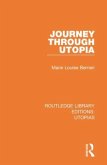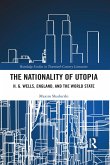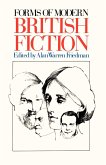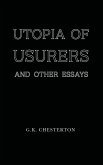Though much has been written about connections between early modern utopia and nascent European imperialism, the author brings a fresh perspective to the topic by exploring it through some of the sub-genres that comprise early modern utopia, identifying and discussing each specific form in the cultural and historical contexts that render it suitable for the creation and promulgation of utopian programs, whether imaginary or intended for actual implementation. This study transforms scholarly understanding of early modern utopia by first complicating our notion of it as a single genre, and secondly by fusing our paradoxically fragmented view of it as alternately a literary or social phenomenon. Her analysis shows early modern utopia to be not a single genre, but rather a conglomeration of many forms or sub-genres, including travel writing, ethnography, dialogue, pastoral, and the sermon, each with its own relationship to nascent imperialism. These sub-genres bring to utopian writing a variety of discourses - anthropological, theological, philosophical, legal, and more - not usually considered fictional; presented in a humanist guise, these discourses lend to early modern utopia an authority that serves to counteract the general contemporary distrust of fiction. The author shows how early modern utopia, in conjunction with the authoritative forms of its sub-genres, is not only able to impose its fictions upon the material world but in doing so contributes to the imperialistic agendas of its day. This volume contains a bibliographical essay as well as a chronology of utopian publications and projects, in Europe and the New World.
Hinweis: Dieser Artikel kann nur an eine deutsche Lieferadresse ausgeliefert werden.
Hinweis: Dieser Artikel kann nur an eine deutsche Lieferadresse ausgeliefert werden.







![Forms of the Ionic Dialect in Homer, With an Appendix On the Principal Dialectic Peculiarities of Herodotus, Tr. [By G.E.L. Cotton.] Forms of the Ionic Dialect in Homer, With an Appendix On the Principal Dialectic Peculiarities of Herodotus, Tr. [By G.E.L. Cotton.]](https://bilder.buecher.de/produkte/71/71624/71624625m.jpg)
